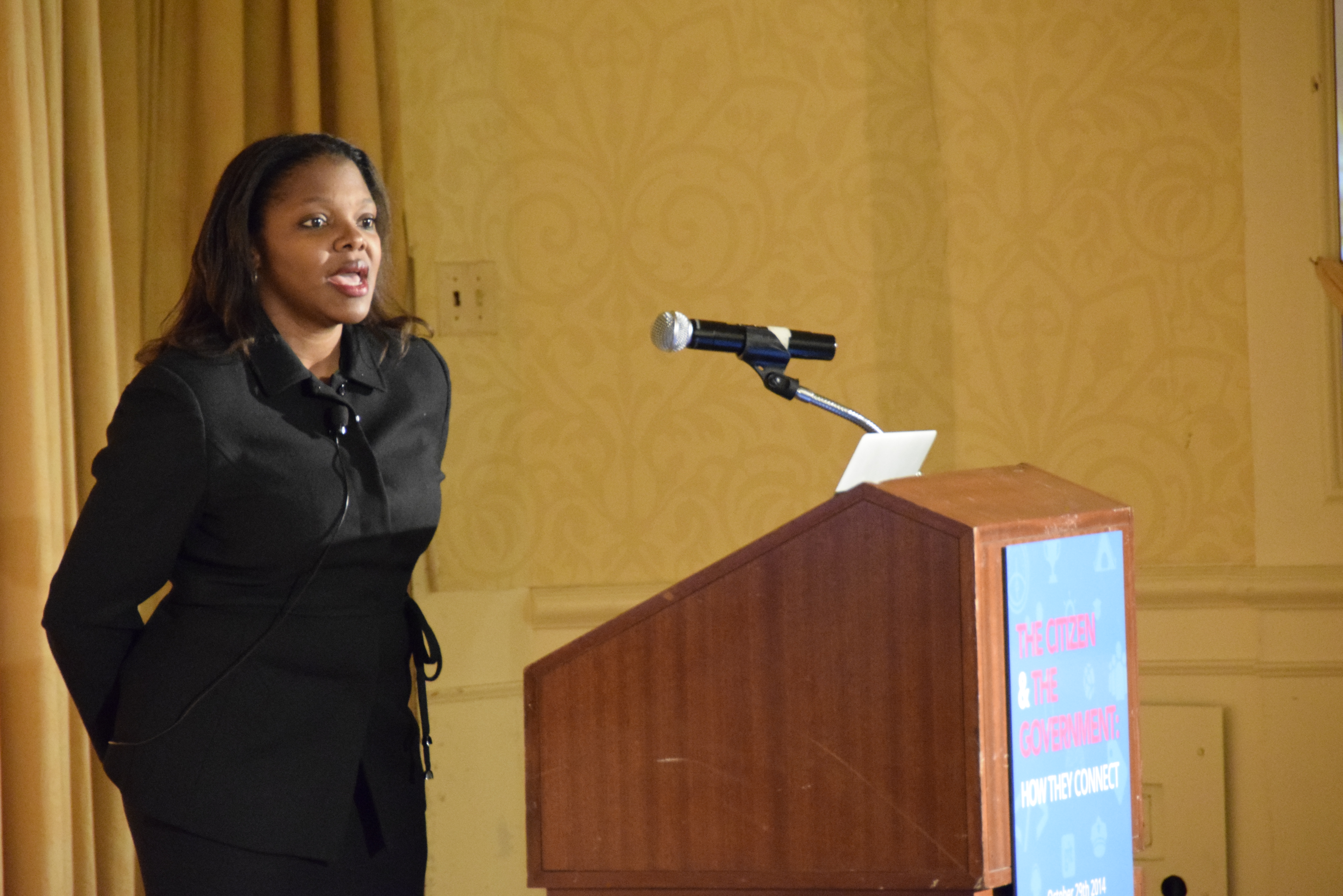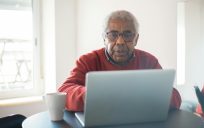Today, GovLoop hosted an event, The Citizen and the Government – How they Connect. The event was designed to help government employees understand how they can leverage digital tools to engage with citizens.
For our final keynote presentation, GovLoop welcomed Dr. Alissa Johnson, the deputy chief information officer (DCIO) for the Office of Administration in the Executive Office of the President (EOP). In her role, Dr. Johnson provides strategic vision and guidance for the implementation of initiatives at the EOP. (Download Dr.Johnson’s slides here).
Her presentation was a reminder of how the current administration has been committed to creating a new kind of openness in government. From the beginning of his administration, President Obama has been championing a government that is more transparent, participatory and collaborative. To execute on his vision, the administration has adopted many social and digital tools to engage with constituents.
“We don’t use just Facebook. The White House has a Tumblr, Twitter and Instagram accounts – and that list goes on and on. That’s important because we have a wide variety of people we have to reach,” said Dr. Johnson. “If you really want to engage citizens, you have got to be ready for the next [platform], and use it effectively.”
Beyond just adopting social tools, Dr. Johnson highlighted some of the work the Administration has done to create new platforms for citizen engagement. One example comes from working with the Open Government Partnership (OGP), an organization that was launched in 2011. OGP’s mission to create an international platform to help governments become more open, accountable and responsive to citizens needs.
One example of how the US has partnered with OGP is through the creation of the U.S. Open Government National Action Plan (NAP). The NAP contains a set of 26 commitments by the US government to increase access to information, management of public resources and identify ways to make citizens more active in policy making. The NAP was created with input from both the public and private sector, and solicited input from the Open Government Working Group. This group is made up of senior level officials from the executive branch. Also, the White House engaged the public through a series of blog posts, asking for input on how to improve the plan.
One of the outcomes of the NAP was petitions.whitehouse.gov, or commonly referred to as the “We the People” initiative. We the People is a platform that allows citizens to create and sign petitions. If a petition has 150 signatures within 30 days, the petition becomes public, and if the petition gains 100,000 signatures within 30 days, the White House will issue a formal response to the petition. Dr. Johnson noted how this program provides a new platform for engagement, and offers citizens an additional way to have their voice be heard, and become active participants in crafting government policy.
One example from We the People is that following the tragic school shooting at Sandy Hook Elementary, the White House respond to 32 petitions related to gun control.
Another example cited by Dr. Johnson is the challenge.gov platform. The platform helps agencies tap into the collective intelligence of citizens to solve issues of national interest. For instance, a White House blog shares an example from Rebuild by Design, a program from the Department of Housing and Urban and Development, which was created to help communities recover and work on redevelopment projects after hurricane Sandy, the winners were granted $2 million to support the initiative. The same blog also shared that 42,000 Americans have participated in over 300 challenges, and $35 million in prizes have been awarded.
Although We the People and Challenge.gov have taken an innovative approach to citizen engagement, the work continues. As new platforms emerge, and new solutions become available, government must continue to find ways to engage with citizens.
“Citizen engagement is a joint effort, change begins with us, but more importantly, change begins with you,” said Dr. Johnson.
Read more recaps from the event:
- GSA Teaches Citizen Engagement
- 8 Reasons Customer Service = Success For You and Your Agency
- The White House: Championing Citizen Engagement Programs
- Digital Communications & the Rise of the CMO
For more citizen engagement ideas, make sure to download our free guide, 18 Strategies for Citizen Success.





[…] The White House: Championing Citizen Engagement Programs […]
[…] The White House: Championing Citizen Engagement Programs […]
[…] The White House: Championing Citizen Engagement Programs […]